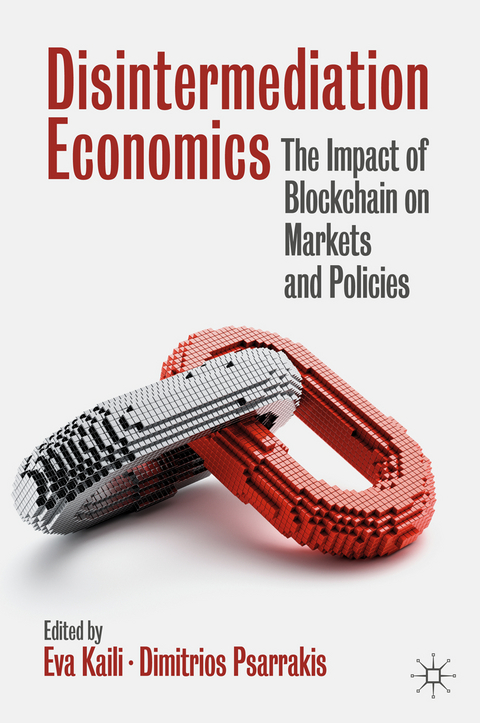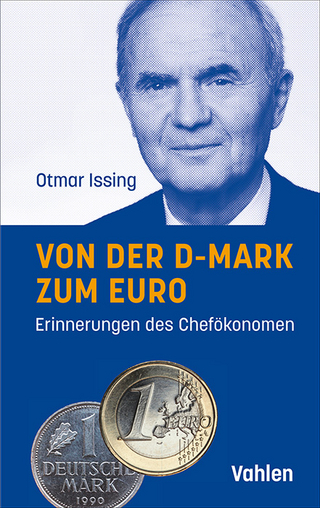
Disintermediation Economics
Springer International Publishing (Verlag)
978-3-030-65780-2 (ISBN)
This book provides a coherent Blockchain framework for the business community, governments, and universities structured around microeconomics, macroeconomics, finance, and political economy and identifies how business organizations, financial markets and governmental policies are changed by digitalization, specifically Blockchain. This framework, what they authors call "disintermediation economics," affects everything by providing a paradigm that transforms the way we organize markets and value chains, financial services, central banking, budgetary policies, innovation ecosystems, government services, and civil society. Bringing together leading and experienced policy makers, corporate practitioners, and academics from top universities, this book offers a road map of best practices that can be immediately useful to firms, policy makers as well as academics by balancing theory with practice.
lt;p>Dimitrios Psarrakis is Financial Technology and Innovation Strategy specialist of the European Parliament. He has more than 16 years of experience in financial regulation, financial services, and corporate finance. He is actively involved in the formation of the Digital Finance strategy of the EU and the draftsperson of the DLT and Blockchain Resolution of the European Parliament. He is ranked among the 100 top world influencers in the area of RegTech and Blockchain and he is frequent speaker on FinTech, RegTech, Blockchain, ICOs, and the Digital Disruption of Banking and Financial Sector in Europe, America, and Asia. He is also the Founder and CEO of the World Future Foundation (WFF), an international think-tank that explores the impact of digital disruption in Business, Government, and Society. He has a graduate degree in finance from Harvard University.
Eva Kaili is a Member of the European Parliament and Head of the Hellenic S&D Delegation since 2014. She is the Chair of the Future of Science and Technology Panel in the European Parliament (STOA), Member of the Industry, Research and Energy Committee, and of the Committee of Economic and Monetary affairs. In her capacity, she has been working intensively on promoting innovation as a driving force of the establishment of the European Digital Single Market. She has been the draftsperson of multiple pieces of legislation. She is the Rapporteur of the DLT and Blockchain resolution of the European Parliament as well as of critical reports and regulations in digital platforms, big data, fintech, AI, and cybersecurity. She is the founder of the World Future Forum (WFF). As a high ranking and influential MEP she is often invited to talk about her work in important conferences and academic institutions worldwide. She has also been the Chair of the Delegation to the NATO PA in the European Parliament, focusing on Defence and Security of Europe. Prior to that, she has been elected as a Member of the Hellenic Parliament 2007-2012, with the PanHellenic Socialist Movement (PASOK). She also worked as a journalist and newscaster prior to her political career. She holds a Bachelor degree in Architecture and Civil Engineering, and Postgraduate degree in European Politics.Ch. 1: What is Disintermediation Economics: An introduction (Psarrakis).- Part A: Disintermediation in Microeconomics.- Ch. 2: Distributed Ledger Economics: Organizations, Incentives and Strategy (Psarrakis).- Ch. 3: Economics of Smart Contracts: Efficiency and legal challenges (Dobrauz-Saldapenna and Schrackmann).- Ch. 4: Corporate Strategies for Blockchain-based Solutions (Verheggen).- Ch. 5: Distributed Data Economics (Shrier).-Part B: Disintermediation in Macroeconomics and Finance.- Ch. 6: Blockchain for Growth: Applying distributed ledger technologies to the UN Sustainable goals (Thomason).- Ch. 7: The New Money: The utility of Cryptocurrencies and the need for a New Monetary Policy (Lee and Teo).- Ch. 8: Privately Issued Digital Currencies (Disparte).- Ch. 9: Crypto-assets, Distributed Ledger Technologies and Disintermediation in Finance: Overcoming impediments to scaling: A view from the EU (Noble).- Ch. 10: Crypto-assets and Disintermediation in Finance: A view from Asia (Johnstone).- Part C: Disintermediation in Political Economy and Regulation.- Ch. 11: The Political Economy of the Blockchain (Zilgalvis).- Ch. 12: Regulating Blockchain in the EU: Building a global competitive advantage (Kaili).- Ch. 13: Advancing Digital Transformation in the Public Sector with Blockchain: A view from the European Union (Baldacci and Frade).- Ch. 14: Disposable Identities? Why digital identity matters to blockchain disintermediation and for society (Anania, Le Gars, and van Kranenburg).
| Erscheinungsdatum | 01.07.2021 |
|---|---|
| Zusatzinfo | XVII, 336 p. 17 illus., 12 illus. in color. |
| Verlagsort | Cham |
| Sprache | englisch |
| Maße | 155 x 235 mm |
| Gewicht | 654 g |
| Themenwelt | Wirtschaft ► Betriebswirtschaft / Management ► Finanzierung |
| Betriebswirtschaft / Management ► Spezielle Betriebswirtschaftslehre ► Bankbetriebslehre | |
| Wirtschaft ► Volkswirtschaftslehre ► Makroökonomie | |
| Schlagworte | Blockchain resolution • Blockchain technology • cryptocurrencies • Digital financial regulation • Financial Markets • FinTech • Regtech • Value Chains |
| ISBN-10 | 3-030-65780-9 / 3030657809 |
| ISBN-13 | 978-3-030-65780-2 / 9783030657802 |
| Zustand | Neuware |
| Informationen gemäß Produktsicherheitsverordnung (GPSR) | |
| Haben Sie eine Frage zum Produkt? |
aus dem Bereich


